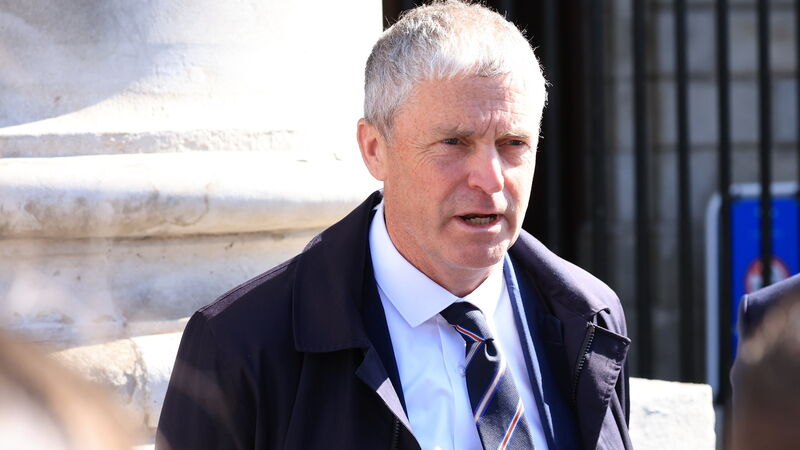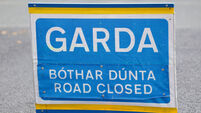'That creature simply does not exist': Super junior ministers challenge opens at High Court

Pa Daly outside the Four Courts where he is bringing a constitutional challenge against the Government in the High court regarding the appointment of 'super junior' ministers. Picture: Collins Courts
Pa Daly’s High Court action challenging the constitutionality of super junior minister appointments has opened before a three-judge division of the High Court.
Three judges, including the High Court president Mr Justice David Barniville, are hearing the case, brought by the Kerry Sinn Féin TD which is expected to run until Wednesday.










